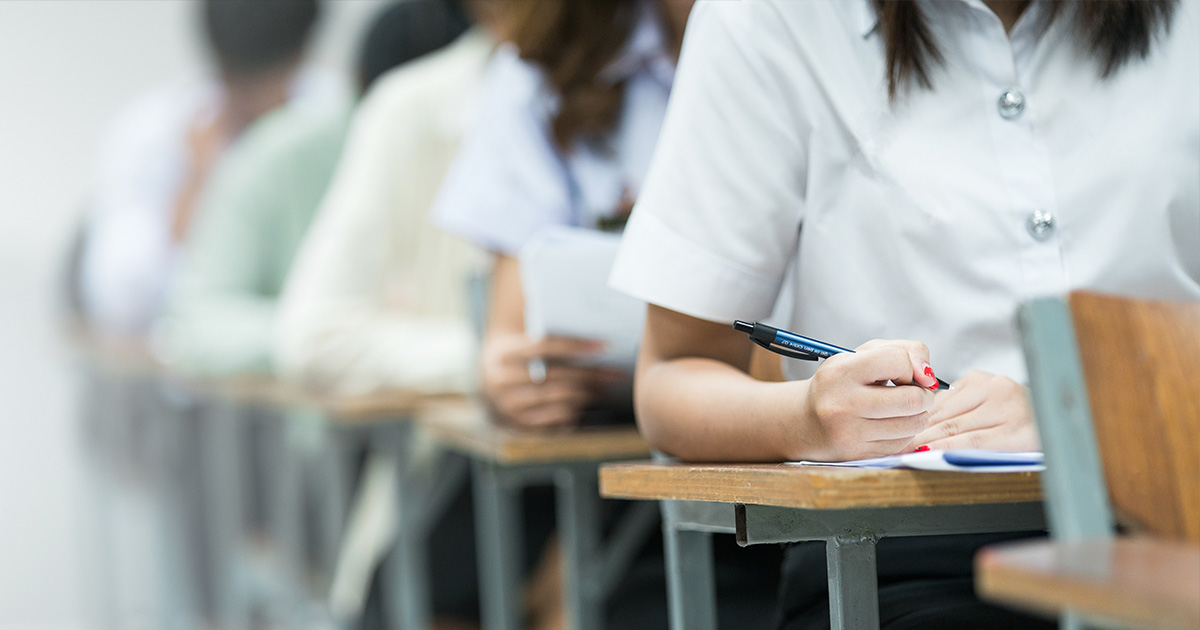The Woolcock Institute of Medical Research

Daylight saving, exams and sleep
With the end-of-school exams for our Year 12s fast approaching, paediatric sleep specialist Dr Chris Seton is at pains to stress to students, parents and educators that sleep is a study drug.
"I can tell teenagers that sleep is a powerful drug, it's a great learning drug, it's a great mood drug. They sort of know that already but sleep is often the first thing that’s sacrificed when life gets busy.”
As students approach graduation, extra-curricular activities, farewell events, leadership responsibilities, major work submissions and additional study sessions all vie for their time, but Dr Seton says they still need as much sleep as their Year 7 counterparts.
“That’s ideally nine hours a night, but that’s not what societal norms or their teachers expect of them. Students in their final year of school are expected to do more work, do more study, stay up later," he says. “They don’t get their nine hours, they get sleep deprived, they’re stressed due to the pressure of exams and a full schedule and that makes them sleep less. It’s a vicious circle.”
DEDUCT ONE HOUR
In Australia's eastern states, we also turn our clocks forward for daylight saving on the first weekend in October, lose an hour’s sleep and have to reset just as students are in their final weeks of exam preparation. For teenagers, many of whom have late body clocks, the transition makes getting a proper night's sleep difficult for weeks.
"The worst thing you can do to them is take away an hour of their sleep by putting the clock forward, because a lot of them don't adapt," says Dr Seton. “Early risers don’t tend to have a problem with the change, people with normal body clocks can adapt, but those with late body clocks have great trouble," says Dr Seton.
In the past 10 to 15 years, the number of teens with late body clocks has grown significantly; from around a third to nearly half of all teens. Researchers aren’t sure exactly what’s causing the trend, but Dr Seton believes the problem is at least partly environmental.
"Teens today are doing things which push their body clock later. Using digital screens late at night adds to the problem because a screen's blue light is a message for our brain to wake up. Teens are also dealing with higher expectations and lots of extra-curricular activities, which mean their sleep time gets squeezed."
Want to stay up to date with our research on sleep and respiratory conditions?
Sign up to our quarterly newsletter
ADD MORNING STRESS
Teens with a late body clock are cognitively and physically really active and alert in the evening and take a long time to get going in the morning. That makes them particularly vulnerable during stressful exam periods with research showing that having a late body clock can reduce potential marks in exams significantly, and that exam performance in the morning in this group is much worse than it is in the afternoon.
On a broad policy level, there has been discussion for some time about keeping daylight saving time on all year round, so that clocks are not turned forward in October and back in April. Others have suggested making the change at the end of the year 12 exams rather than the beginning to accommodate our teens when we are expecting the most from them. Schools could also start the day later, a practice that is becoming increasingly widespread.
On a more individual level, Dr Seton believes effective exam preparation must always include sleep training.
"But selling sleep to teenagers is hard," says Dr Seton. "It’s even harder with teens who are managing the pressures of end-of-year exams. Sleep can seem boring and everything else much more important.”
So, it’s up to parents and educators to make sure they’re prioritising their sleep and that means reinforcing the message that eating well, exercising during the day, regular weeknight bedtimes and limiting access to screens in the hour before bed are all vital for a good night’s sleep and for exam success.










